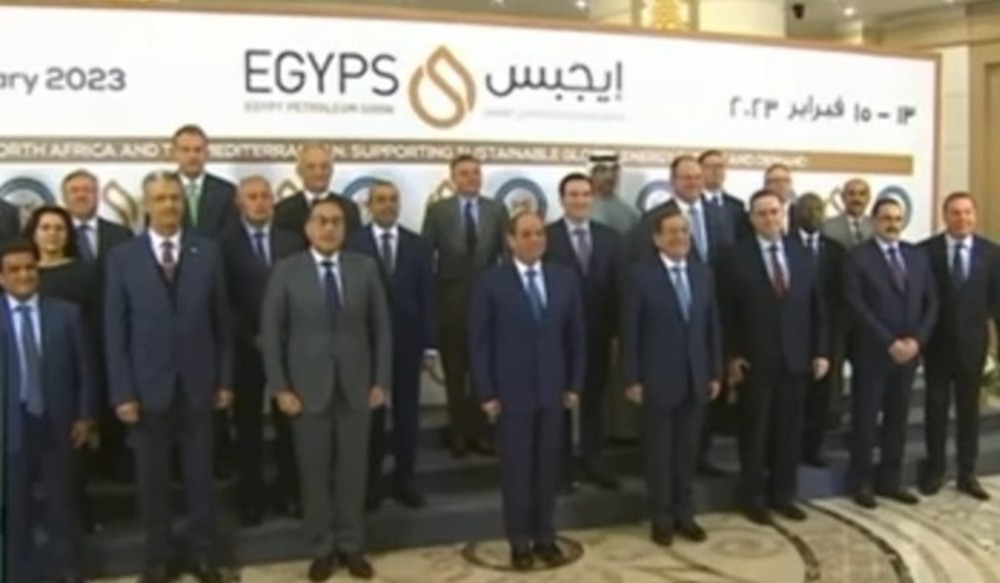Egypt Petroleum Show (EGYPS) 2023, is an international exhibition and conference for the oil and gas industry in Egypt. The event provides a platform for industry leaders and experts to network, share ideas and showcase the latest technology, products, and services related to the sector.
The conference covers a wide range of topics, including upstream, midstream, and downstream activities, as well as the latest developments in the exploration, production, refining, transportation, and distribution of oil and gas. Egypt holds its sixth edition of EGYPS this week. They hold it from February 13–15 at the Egypt International Exhibitions Center (EIEC) in Cairo. Its host is the petroleum and mineral resources minister of Egypt, Tarek El-Molla.
El-Molla announced on Sunday that three further international excavation tenders will be floated this year in addition to the four that were launched through the “Egypt Upstream Gateway” in 2022 before the meeting’s official start.
EGYPS review on previous years: It was a success
The petroleum and mineral resources minister Tarek El-Molla cited the increase in petroleum exports to $18.2 billion. He stressed the achievement of a surplus in the petroleum balance of trade for the third consecutive year. Now it’s totaling $3 billion as some of the milestones the petroleum industry achieved in 2022.
The petroleum industry has been successful in building infrastructure over the past eight years as part of Egypt’s role as an energy hub. Egypt increased the number of ports and platforms to handle butane gas carriers. It also constructed 79 depots for the storage of crude oil and petroleum products.
LNG trade rise in Egypt, the minister reported on EGYPS
According to a report released in September by the Cabinet’s Information and Decision Support Center, Egypt has experienced an unparalleled surge in its natural gas export profits, which have climbed 13-fold over the past eight years (IDSC).
According to the report, Egypt’s natural gas and liquefied natural gas (LNG) export revenues rose from $0.6 billion in 2013/2014 to $8 billion in the fiscal year 2021/2022.
Over the last eight years, Egypt’s LNG and natural gas exports have increased fourfold, from 1.9 million tons to 7.2 million tons.
Egypt secured 108 contracts with foreign businesses for the extraction of gas and oil during that time, each requiring a minimum investment of $22 billion.
Egypt’s production increased by 66.3 percent to 69.2 billion cubic meters (bcm) in 2021/2022 from 41.6 bcm in 2015/2016, according to the research.
El-Molla claimed that an ambitious plan to drill more than 300 new exploratory wells was developed with international partners.
Egypt is self-sufficient in LNG
With a network of 7,000 km in pipelines, a distribution network of 31,000 km, 29 gas-treatment plants, and two LNG facilities—the Idku and Damietta plants—Egypt also possesses the necessary infrastructure for handling and transporting natural gas.
Based on recent massive gas discoveries and production, Egypt has intended to use its proximity to Europe to become a major supplier of LNG to the continent, which is moving away from other fossil fuels. Egypt became self-sufficient in natural gas in 2018.
More than 200 towns received natural gas as part of the Decent Life project, and the petroleum industry was able to keep up the yearly rate of natural gas delivery to 2.2 million dwelling units, according to El-Molla.
The petroleum minister claimed that while the number of gas stations had doubled to reach around 900 stations, the number of vehicles converted to run on natural gas had climbed to about 500,000 vehicles.
Social responsibility of the petroleum sector stressed on EGYPS 2023
Numerous petrochemical projects have been established, and work is being done on more of them, in an effort to increase added value and decrease imports, said minister El-Molla.
He emphasized that the petroleum industry is working to achieve its strategic objectives in a way that supports Egypt’s sustainable economic growth while remaining mindful of its obligations to the social and environmental spheres.
El-Molla said that the petroleum industry has embraced a fresh, coordinated approach to social responsibility built on sustainability with the goal of bolstering and enhancing the sector’s and its partners’ contributions to local community development.

